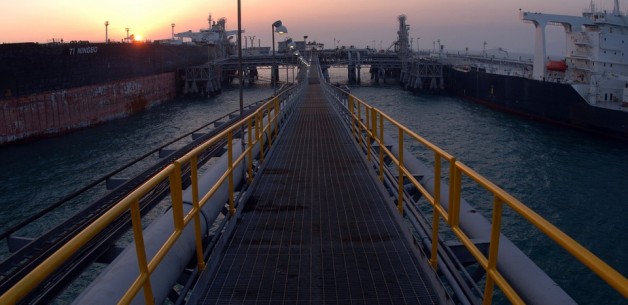This post is also available in: Arabic
Since June 2014, the security expenditure associated with battling the Islamic State organization, also known as ISIS, and the stunning decline in oil prices to an average $35 in 2016 have combined to cause grave economic troubles for the Iraqi state, creating a budget deficit of $25 billion in 2016. Today, in order to pay for its sizable public sector employees, Iraq depends on its international reserves assets, which have been depleting fast to $66 billion, from original $78 billion.
To deal with the crisis, in November 2015, representatives from the International Monetary Fund (IMF) and the government of Iraq met in Amman, Jordan to jump start the talks over a stand-by loan to be worth $15 billion in support of key economic reforms. Two-thirds of the loan, expected to be dispersed in June 2016, would come from the IMF while regional and international donors will support the rest. A high ranking IMF official told Reuters that the loan will take the form of a “multiples of the $1.24 billion in emergency funding which the IMF agreed to provide in July [2015].” Basically, the loan is several $1.24 billion Emergency Loans added together. Consistent with the deal, Iraq will receive $5 billion in 2016, with disbursement of the rest occurring over the next two years.
The Iraqi delegation was represented by the Minister of Finance, Hoshyar Zebari, Governor of the Central Bank of Iraq (CBI), officials from the ministries of finance, oil, planning, electricity, the CBI, and representatives from state-owned banks. Mission Chief, Christian Josz, led the IMF team. During the meeting, the Iraqi delegation asked that the IMF establishes a Staff-Monitored Program (SMP) to monitor Iraq’s economic policies. The reason for the request has to do with Iraq’s desire to build a record of policy implementation and to prove its commitment to fiscal consolidation and reduction of public spending, which forms the basis for the disbursement of the large loan. The main goal of the SMP is to reduce non-oil deficit by $20 billion or 12 percent of non-oil GDP by end of 2016.
The November meeting was followed by other meetings, most recently in April 2016 in Washington, examining the details of financial and economic reforms. Before disbursing the loan, IMF officials want to ensure that Iraq’s commitment to reforms is “permanent to underpin medium-term fiscal and external sustainability.” Further, the loan is “contingent on progress in meeting five main targets related to the budget deficit, it’s financing by the central bank, keeping sufficient reserves, targeting social spending and avoiding accumulating arrears to international companies.” IMF Leaders want to see more economic and social reforms, such as reducing subsidies to energy and terminating the government-run food ration program. These are difficult to implement not only because they are politically unsustainable, but also socially unsupportable in a state where poverty rate is at 30 percent high.
Proposed measures also include reforming the state-owned companies and public sector employment. This is important since, according to Mudher Saleh, chief economic advisor to Prime Minister Haider al-Abadi, “public sector workers are productive for an average of just 15 minutes per day. State-owned factories, already hampered by outdated and poorly maintained equipment, produce at only a fraction of capacity, yet they employ many more workers than they need.”
IMF leaders also want the government to tackle corruption, which is one of the topics discussed on the sides of IMF/World Bank 2016 Annual Spring Meeting between Iraqi civil society activists and senior IMF officials, who noted institutional corruption as one of the real obstacles to economic recovery.
Now that al-Abadi is on the march to build support for his political reforms aimed at reducing corruption and waste, it is timely that the IMF advocates that the Iraqi government work together with local Civil Society Organizations (CSOS) to solve the issues of bad governance, mismanagement, and corruption.

